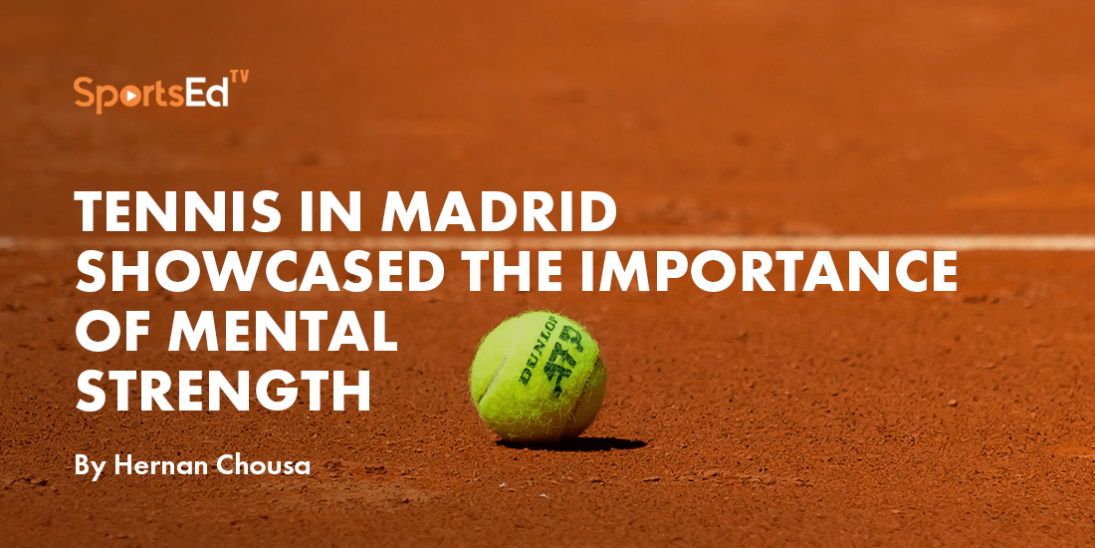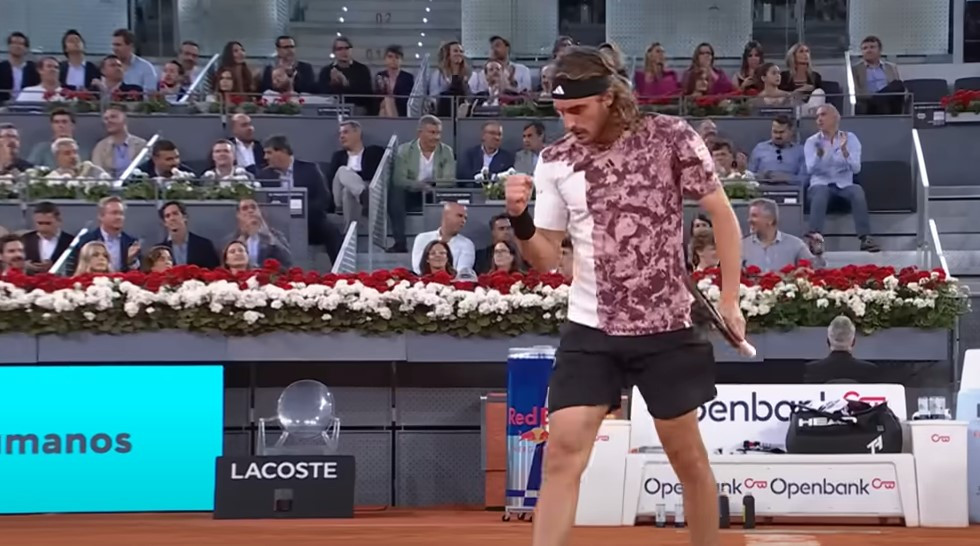Health, Mental Health, Mental Toughness, Sports Parenting, Tennis
Welcome and thanks for visiting...

Unveiling the Mind Game: How Tennis in Madrid Showcased the Importance of Mental Strength

Parents with children involved in sports often find it difficult to plan vacations lasting more than a few days. The guilt of leaving our kids with relatives or friends for an extended period weighs heavily on us. However, now that my sons are in their twenties, I am no longer part of that group. My spouse and I recently embarked on a two-week vacation to Spain.
Our first destination was Madrid, a truly fantastic city where we immediately felt at ease. The traditions and culture in Madrid are similar to those in Argentina, including the language, albeit with different accents. The people we encountered were kind and warm, adding to our sense of comfort and enjoyment.
While a holiday filled with 24/7 walking and visiting museums and historical sites can be satisfying, we believe that sports should also be a part of any vacation. Thus, we dedicated a couple of days to attending the Madrid Open. We were fortunate enough to witness the most exciting match of the tournament: Carlos Alcaraz's first-round match at the Manolo Santana Stadium.
The stadium was meticulously prepared for Carlos' debut, with red seats and flowers meticulously aligned with the steel structure. However, the unexpected happened. Emil Ruusuvuori ranked 43 and took control of the match for the first one-and-a-half sets. Carlos's serve did not trouble him; moreover, Carlos appeared uncomfortable with the second ball after serving, and he struggled to return Emil's serve. The pressure eventually got to him, and he even threw his racket in frustration—an act that surprised the crowd, as they watched their rising star being outplayed on his home court. This match highlighted an important aspect of modern tennis: the margin between the top-ranked players and the rest is narrow, and anyone can defeat the leaders.
Another observation I made was that playing tennis at a professional level is incredibly challenging. Every parent dreams or idealizes their child reaching the elite level, but the reality is not as glamorous. The tour calendar is exhausting; there are weeks when players are not mentally at their best. Even when I played at a lower level for less money, burnout often made me long for some rest at home. I noticed the same symptoms of exhaustion in elite players. Why do they feel drained despite their high earnings? Simply because they are human beings. Money cannot alleviate the burden of the demanding lifestyle on their mental and physical well-being. Considering these factors, I'm not sure if I would be comfortable with a son playing in such a highly competitive league.

However, amidst all these observations, one player caught my attention and impressed me the most—Stefanos Tsitsipas. It was my first time watching him play, and initially, his style seemed rough around the edges. But something was intriguing about him. He possessed a rare quality that significantly impacted his gameplay: an unwavering mental state. Regardless of what had transpired a few seconds earlier, Tsitsipas approached every point as if it were a fresh start. He never celebrated a point he won nor expressed regret over a lost one. Instead, his mind remained focused on the next point, constantly seeking ways to improve his game. His achievement was even more remarkable because his father was constantly coaching him, sometimes in a rather noisy manner. Maintaining such composure and concentration in such circumstances is undeniably difficult.
In conclusion, if I were to recommend a role model in tennis, it would not be Carlos, despite his exceptional skills and abilities in all aspects of the game. On the other hand, emulating Stefano's approach is more accessible. Playing each point with unwavering focus and determination is easier than developing a full range of strokes. It trains your mind and enhances your mental resilience. As the great Jimmy Connors once said, "Tennis is 95% mental." Tennis, like life, is a mind game, and adopting Tsitsipas' mindset can improve your performance on the court and set you up for success in various aspects of life.
So, as I reflect on our vacation in Spain, I am grateful for the opportunity to witness the intensity and challenges of professional tennis up close. It reinforced the notion that sports at the elite level demand a tremendous amount of mental and physical strength. It also reminded me of the delicate balance parents must strike when supporting their children's athletic aspirations.
While it may be tempting to idealize the glamorous life of professional athletes, it's important to recognize the sacrifices, pressures, and exhaustion they face. Instead, let us focus on the valuable lessons we can learn from individuals like Stefanos Tsitsipas, who demonstrate unwavering determination and mental fortitude. Their ability to play each point as if it were a new opportunity teaches us that success lies not only in talent and skill but also in cultivating a resilient and focused mindset.
As we return from our vacation, I carry with me the inspiration derived from witnessing the Madrid Open and the profound realization that success in tennis, as in life, ultimately depends on how we train our minds. Whether on the tennis court or facing life's challenges, adopting a mindset like Tsitsipas' can empower us to overcome obstacles, improve our performance, and ultimately achieve our goals.







